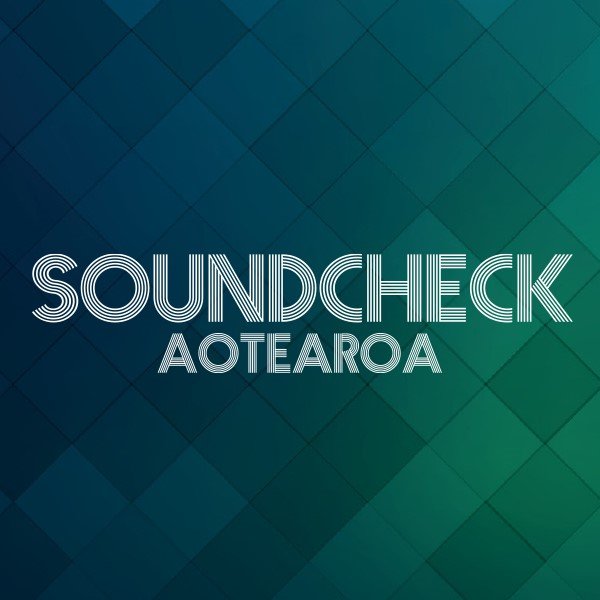ABOUT THE RESOURCES
This section of the website contains a range of resources to assist people and businesses in the music community to prevent and respond to sexual harassment in their workplaces.
SoundCheck Aotearoa decided to create these resources following feedback from the music community, and expert independent advice. In consultation sessions we heard that people wanted documents, templates and posters to help to create culture change in their workplaces. In July 2021 we published an independent report Creating Culture Change Around Sexual Harm in the Music Community which contained a set of ten recommendations for what the music community can do to prevent and respond to sexual harm.
Several of the report’s recommendations identified a need for resources, alongside a program of training and a range of other initiatives such as supporting groups to develop culturally appropriate resources and strategies. SoundCheck Aotearoa is working in partnership with the Māori Music Industry Coalition to implement the recommendations from the report. You can read more about SoundCheck Aotearoa HERE.
Here are some things to keep in mind when you are browsing and using the resources:
Health and Safety at Work Act 2015
The Health and Safety at Work Act or ‘HSWA’ underpins many of the resources. This is because:
HSWA requires a person conducting a business or undertaking (PCBU) to ensure, so far as is reasonably practicable, that the health and safety of its workers and others are not put at risk by its work, and,
WorkSafe Guidance on the HSWA specifically includes bullying, harassment and sexual harassment as workplace health and safety risks.
As a result we recommend reading WorkSafe guidance alongside the resources on this website.
Implementing and adopting the resources
The resources on this website are tools to be used within the wider context of creating a positive culture in your workplace. Each of the resources, in particular the Sexual Harassment Policy and Code of Conduct, include guidance on how to implement the resource in your work and consult with the people you work with. Remember that a document alone will not prevent harm from occurring. Any resources you create need to be embedded with strong leadership and a respectful workplace culture where everyone is committed to doing the work needed to prevent sexual harassment.
Tangata te Tiriti
You will notice that in many of these resources there are places for you to weave in information about your values and make them culturally relevant to you and the people you work with. In addition to this, SoundCheck Aotearoa and Māori Music Industry Coalition are committed to their roles as tangata te Tiriti ( people of Te Tiriti O Waitangi - both non-Māori and Māori) and are working together to support the creation of further resources in the future. We are excited about the opportunities for mātauranga Māori (traditional Māori wisdom and knowledge) to influence our prevention resources through shared mātāpono and principles like wairua, tika, mahi tahi, mana, whānau, and manaakitanga which can help us all prevent sexual harm. For more information about this, see the Creating Culture Change report.
Working with under-18s
These resources have been created within the legal framework that applies to adults, ie people 18 and over. If you work involves people who are under 18, you will need to have a Child Protection Policy and take additional steps to comply with legislative requirements. Our resources and guidance do not cover this topic. There is more background information on Oranga Tamariki’s website.
Legal status of the resources
The resources created by SoundCheck Aotearoa have been prepared and reviewed by experts in sexual harm prevention and response, lawyers, HR advisors, health and safety advisors, and a range of music industry professionals. However, the resources and guidance are templates; they are not a substitute for advice on your specific situation, and using one or more of the resources is not a guarantee of compliance with the legal requirements. This is a matter for individuals and entities to judge for themselves, and take further advice if they need to.
Resources are not being used to certify compliance
We hope that the resources will spark some ideas and initiatives. Over time we hope they will be used more widely and the principles may develop into industry standards. At this stage the resources are not mandatory or uniform across the industry, and they are not intended to be used to certify or judge the compliance or safety of particular people, entities or workplaces.
Third party links/resources
We have included links to some external websites containing relevant resources created by third parties. In providing these links we are suggesting the third party resources as useful examples but we are not necessarily endorsing the organisation that created the resource.
How to use the resources
There are a number of ways to find the resources you need. The Resources homepage contains links to all the templates and guidance that can be used in many different settings in the music community.
There are also sections for the live music sector; artists/artist managers; and people working in studios/collaborative spaces. These contain tailored guidance for you, but link through to many of the same templates and resources. For example the Sexual Harassment Policy and Code of Conduct template can be used by anyone regardless of the setting.
Definitions
Throughout these documents you will notice we have used some specific words when referring to sexual harm, the people involved, and those who have a role in preventing it under legislation. To read an explanation of some of the terms and concepts that have been used, please head here: Definitions: Sexual Harm and Consent
Feedback on the resources
If you would like to provide any feedback on the resources, please contact us by emailing info@soundcheckaotearoa.co.nz or filling out our online feedback form (which can be done anonymously).

